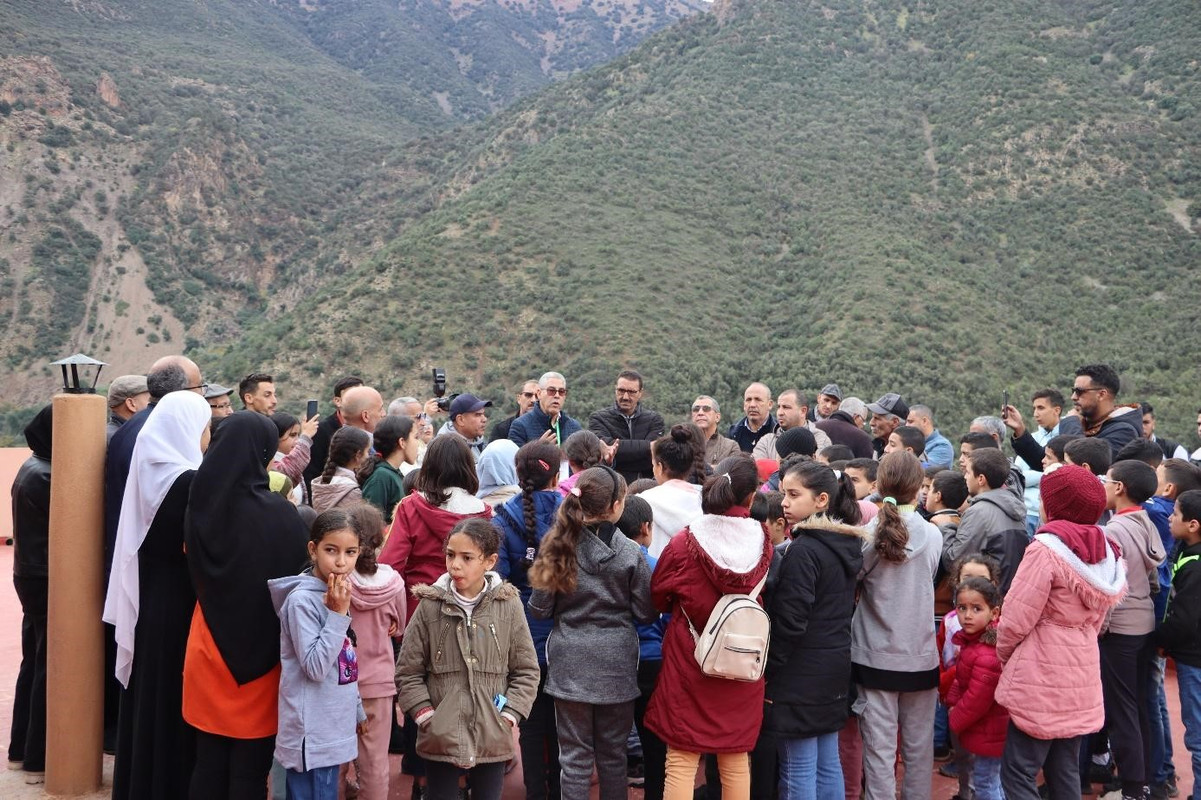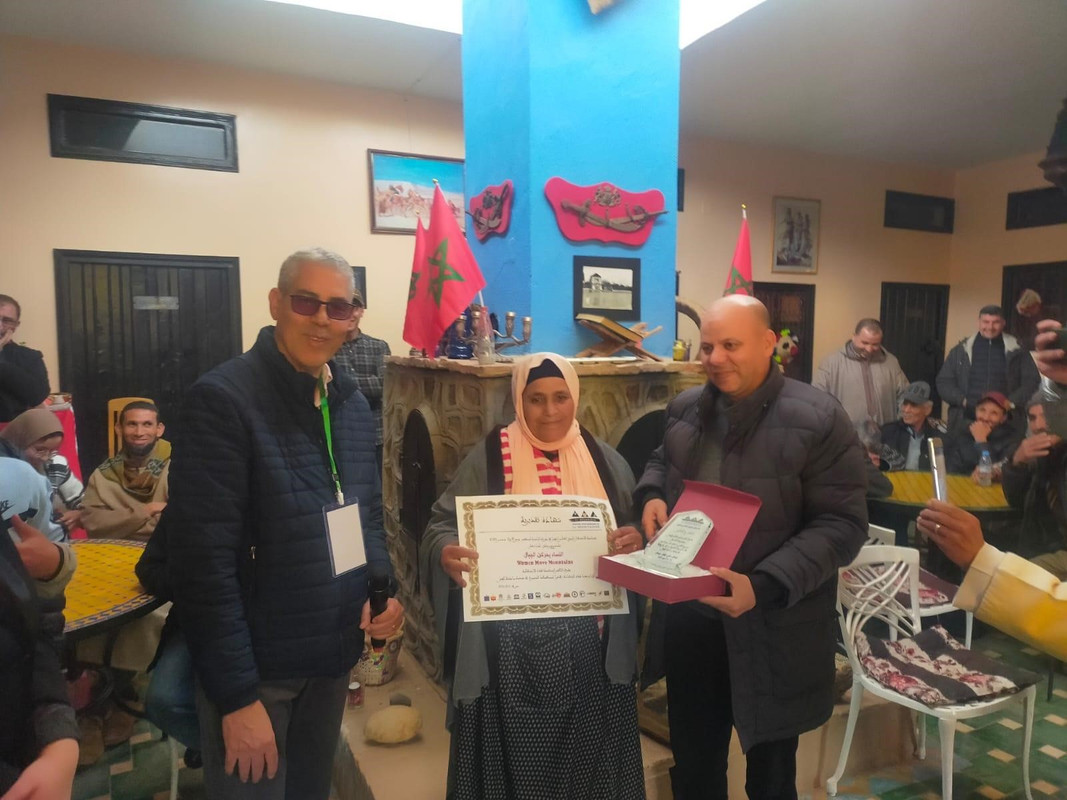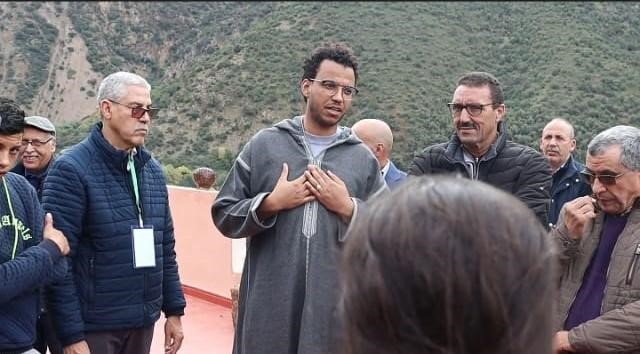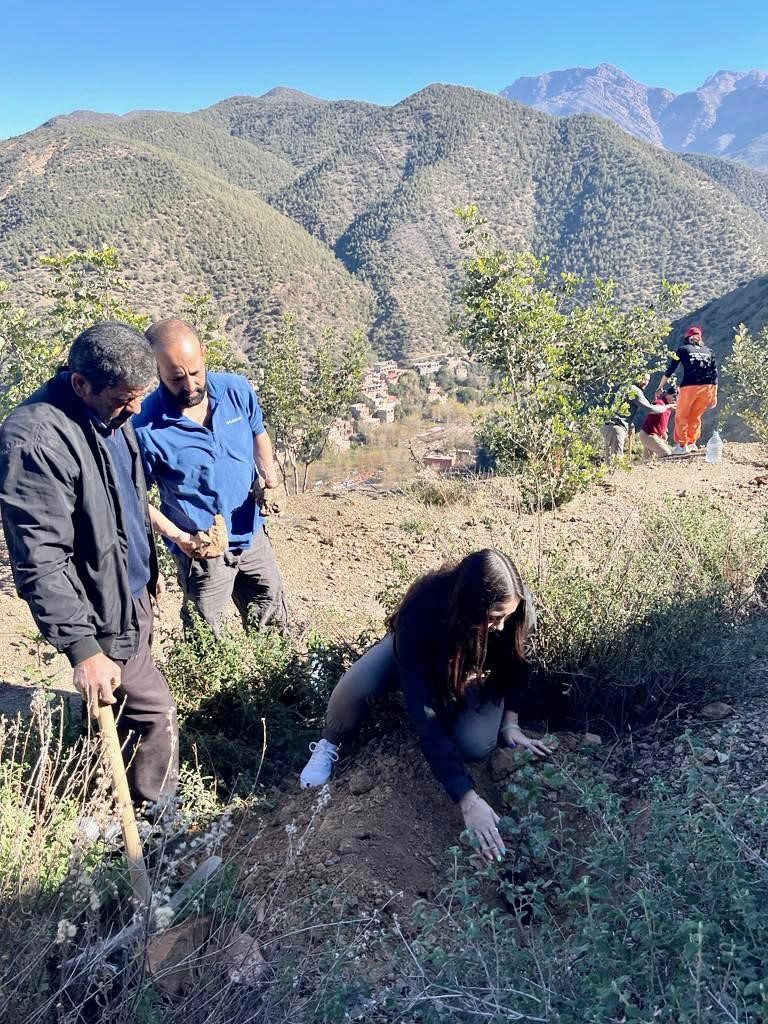French Version
El Hassane Ahmatay, HAF Volunteer
Celebrated on December 11th each year, International Mountain Day is an opportunity to highlight the riches and vulnerabilities of high altitude territories, as well as the role of women in the mountains for sustainable development. Morocco, which has major mountain ranges that have shaped its history and identity, is therefore particularly concerned with the protection of these areas.
In addition to being complex, the situation of the different mountain ranges in Morocco varies hugely. Like other mountainous areas around the world, the Atlas and Rif ranges are rich territories in terms of cultural and natural heritage. They play a major role in the sustainable development of Morocco.
On Sunday, December 12th 2022, I had the opportunity to attend the mountain celebration at Tassa Ouirgane with the HAF team: Said Bennani, the manager of the tree planting program, Mr Abdelghani, the technical assistant, and Youness and Rhona, my volunteer colleagues.
We took the road to Tassa Ouirgane, a village located in the High Atlas Mountains. On our way we passed several Amazigh villages, with their typical hill houses embedded in the wonderful landscape of the mountains, and we saw pristine, green meadows which make this place feel magical.

Upon our arrival, we were welcomed by the guests, the president of the event and students of the local school, who were very happy to be part of the program. The event brought together leaders of associations and local cooperatives and young people from the region.
After the recitation of some Ayat verses from the Quran, there was a short welcoming ceremony and we got to know each other. The purpose of this event was to celebrate the women of the mountains and to honor their efforts for the development in the region.
Women living in mountain areas go through harsh living conditions, marginalization and a lot of very difficult challenges, demonstrating extraordinary resilience and tenacity, to earn a living and to pave the way for a better future.
One of the unique characteristics of the communities in the mountains is the role of women. They are active members of society and they work in agriculture like the men. Therefore, women in these areas earn close to or the same amount of money for their work as men. The women are also responsible for educating and taking care of their children.
To honor these efforts, the organizers of the event paid tribute to two women of the village for their outstanding engagement for improving the lives of women in the region. One of the women, Ialla Najat, was the first woman to create a women’s cooperative in the region, empowering women and improving the life of future generations of girls. Her daughter told the guests about her late mother who devoted her life to help others. Ialla remains in the hearts of the people of the village who honored her with a beautiful statue.

The second woman, Ialla Ikbira, is the grandmother of 100 children. She is called “grandmother of the douar” and a living example of an ambitious woman who, despite all the circumstances and difficulties, was able to contribute to the development of the region. She is an advocate for women’s education, encouraging young girls to attend school instead of dropping out and promoting literacy classes for adult women. She also created an association for weddings and celebrations in the village.
Before leaving, Said Bennani thanked the organizers and the guests for the invitation and underlined the High Atlas Foundation´s commitment to sustainable development by improving capacity building and skills development, promoting the education and economic empowerment of women, developing the agricultural sector, and planting organic fruit trees, which bring many benefits to the local population.

In 2017, the High Atlas Foundation built a tree nursery in collaboration with the Takhrkhort cooperative, which produces more than 12,000 carob seedlings which will be distributed to communities in the region of Tassa Ouirgane. In addition, IMAGINE workshops for women empowerment have been organized where women received literacy classes and sessions to strengthen their agricultural skills.







